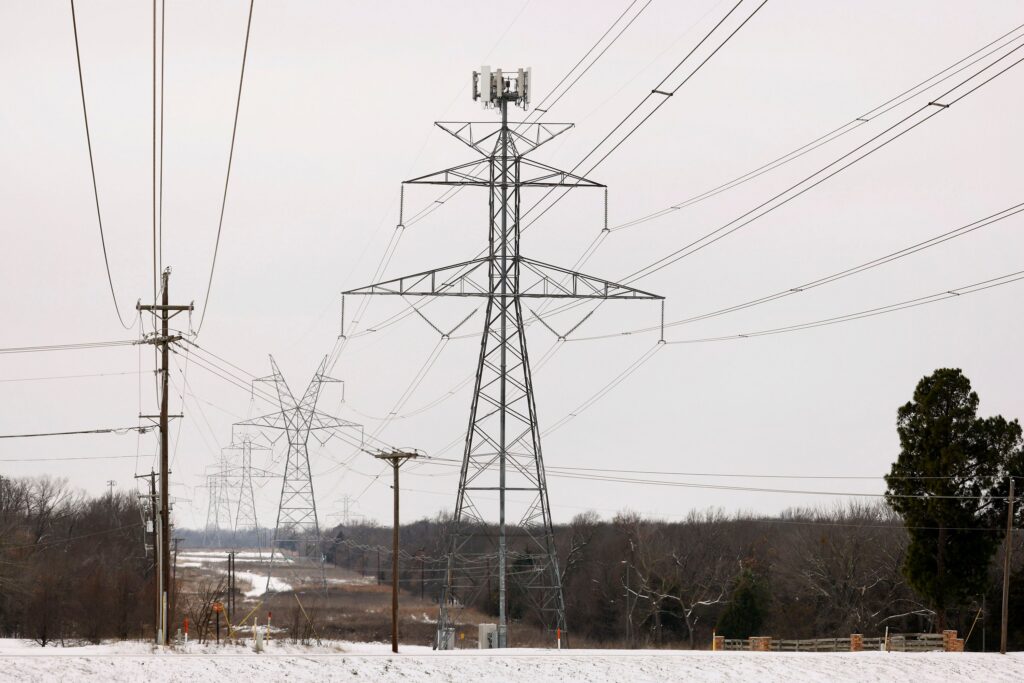Jared Polis’ fifth year agenda a mixed bag | 2023 LEGISLATIVE SESSION
A nearly-20 point win over his Republican challenger in November, a Democratic supermajority in the House and a near one in the state Senate.
What more could a Democratic governor ask for?
Gov. Jared Polis started off the first year of his second term laying out an aggressive agenda on the state’s most pressing issues, such as housing and water. That agenda also included a state responses to gun violence, notably seeking a ban on ghost guns and strengthening Colorado’s red flag law.
Polis early on spoke of the need to address skyrocketing property taxes and continued his call for reducing the state’s income tax.
The 2023 agenda also included pushing the Democratic agenda on climate change; increasing the use of transportation that employs cleaner sources of energy, as well as renewable energy; and, his signature issue from his first term – reducing the cost of health care. In 2023, that meant reducing the cost of prescription drugs and taking aim at Colorado hospitals for what the administration believes is high profits and a practice of overcharging patients.
Such an ambitious agenda, however, fell flat in a number of areas, due in part to disagreements with progressive Democrats in the House and Senate Democrats who refused to go along with his biggest priority, a bill to address the state’s shortage of affordable housing.
Housing
Housing was mentioned 37 times in the Jan. 17 State of the State address, more than any other topic.
Lawmakers went to work, most notably in the House, where progressive Democrats came up with a slate of bills intended to help the 40% of Coloradans who rent. That included bills on “just cause” for evictions, rent control, a “right of first refusal” when affordable apartment buildings go up for sale, and creating the structure for more affordable housing under Proposition 123, which would take $270 million from the TABOR surplus and direct it toward grants and vouchers for homes and rentals.
Polis’ signature proposal, Senate Bill 23-213, was rolled out during a press conference on the west steps of the state Capitol on March 22.
The bill immediately ran into trouble over its attempts to wrest zoning control away from local governments and put it in the hands of the state. Notably, the Department of Local Affairs, long viewed as a partner to local governments, would instead transition to include a role as a regulatory agency, with the authority to create model housing standards and impose them on municipalities that refuse to adopt their own housing codes.
“Unconstitutional!” cried the opponents, including the Colorado Municipal League, which pointed out that the state constitution since 1902 has granted home rule authority to municipalities and since 1970 to counties.
Home rule grants local governments the authority to address local matters. Colorado has 72 cities and towns with home rule charters, including the state’s 10 largest cities.
The effort by state policymakers to take over local zoning drew immediate opposition inside the Capitol, too, most notably from lawmakers in the state Senate whose background includes local government experience. That opposition was led by Sen. Rachel Zenzinger, D-Arvada, chair of the powerful Joint Budget Committee, who said state control was a “bright line” that she would not cross.
SB 213 was amended 65 times during its trip through the Senate and House, an indication of the trouble it found itself in. To opponents, they became a sign the bill wasn’t ready for prime time.
The bill died on the session’s final day, when all-day negotiations behind closed doors failed to come up with a compromise, and it marked the biggest defeat for the governor in his five years in office.
The governor also made it clear he did not want to see some of the progressive’s ideas on rent on his desk, and he got his wish. The bill on “just cause” died on the Senate calendar, while the rent control measure was killed by a Senate committee.
Water
The governor mentioned water was mentioned 24 times in his State of the State address, both as a part of housing policy, as well as the need to address the crisis on the Colorado River. The biggest issue is water security, the governor said, and the need to protect water rights.
But the administration’s proposal – to acquire water rights that would in turn be used to help shore up the river – fell flat on its face.
Austin Vincent of Colorado Farm Bureau told Colorado Politics the concern with both proposals is that the agriculture community was never at the table.
“Early on, not having us at the table, nor having a robust conversation gave us concern because we weren’t allowed to tell ag’s side of the story. Instead, we were told what agriculture should agree to,” he said.
That wasn’t going to fly with an industry that has long claimed the administration is unfriendly to ag, the state’s second-largest economic driver.
Lawmakers who were tasked with sponsoring the administration’s proposal instead turned it into a task force on drought security, a fallback position that also showed another bill was not ready for prime time.
The state water plan got its biggest infusion of funding ever, $27.2 million, all but $2 million from sports gaming revenues.
The state budget for 2023-24 also included $1.8 million to fund a team of 13.9 FTEs that would “navigate the state’s negotiating position and implementation of its interstate commitments in support of agricultural, municipal, recreational, and environmental needs,” related to the Colorado River.
That request also created a new stand-alone position for the Upper Colorado River Commission representative. Becky Mitchell has been serving as both the UCRC commissioner for Colorado as well as chief of the Colorado Water Conservation Board. Mitchell will continue to serve as the commissioner and the state will add a new senior executive level position for the CWCB agency director.
Taxes
While the only effort to reduce the state income tax – a Republican-backed proposal – went down to a quick defeat, legislation on property taxes is now awaiting Polis’ signature.
Senate Bill 303 would divert a portion of TABOR refunds for 10 years (and possibly longer) to pay for property tax relief and to help backfill the loss of revenue for county governments and special districts. K-12 education is also in line for a boost in funding, under the measure, which must be approved by voters in November under Proposition HH.
A related measure, House Bill 1311, would ensure an equalized TABOR refund of $661 per taxpayer or $1,322 for joint filers, partly to address criticisms that SB303 would divert TABOR refunds away from renters, who are 40% of the state’s population, and into the pockets of homeowners and commercial property owners. The equalized refunds are one-time only and is contingent on approval of Prop HH.
SB 303 drew opposition from municipalities, special districts and organizations that represent them, as well as counties, although Colorado Counties, Inc. was in an amend position.
It was also cited as an example of another issue in which the administration failed to fully discuss the proposal with some of the stakeholders most affected by the legislation, namely the counties, municipalities and special districts.
As to income taxes, a half-dozen ballot measures designed to reduce the state income tax and backed by conservatives are in process.
Firearms
Among the bright spots in the 2023 session for the governor, it’s success on five measures intended to help rein in gun violence, and defeat of another that he indicated he would not support.
Democrats passed all five with nary a Republican vote in favor, including a measure strengthening the state’s extreme risk protection orders to allow for district attorneys, medical professionals and educators to file petitions for removal of firearms when the person is believed to be a risk to themselves or to others.
Part of the bill’s impetus was the shooting at Club Q in Colorado Springs last November.
A second measure, named after one of the Aurora Theater shooting victims, allows victims of gun violence to sue firearms manufacturers and dealers in civil court. Another bill that raises the age limit for purchase of a firearm from 18 to 21 also won majority Democratic support, but was watered down to allow for possession of firearms and permit those enrolled in shooting sports or who must defend livestock. Another measure imposes a three-day waiting period for delivery of a firearm after purchase. Those four measures have all been signed into law.
The fifth, to ban ghost guns, which are unserialized firearms that can be created with a kit or 3D printer, awaits Polis’ signature.
One bill the governor didn’t want on his desk – and he got his wish there, too – a ban on assault weapons, pushed by progressive Democrats. The bill hit the headlines before the session even started, but wasn’t introduced until late April and died in its only committee hearing when four Democrats sided with committee Republicans to kill it.
Reproductive health
The Supreme Court decision to overturn Roe v. Wade last year has made Colorado a sanctuary state for abortions, and the Polis administration backed three measures to protect a woman’s right to choose and those who provide abortion services.
Laws protecting abortion patients from out-of-state penalties, expansion of health insurance coverage and a third to prohibit deceptive advertising from crisis pregnancy centers were all signed by the governor in April. The third, however, is on hold because the state doesn’t intend to enforce the law’s provisions on abortion reversal while the state’s medical, nursing and pharmacy boards decide whether abortion reversal treatment is an acceptable practice.
Health care
The governor’s signature issue, on health care, was less prominent during the 2023 session, with just a few policy proposals and a push for several measures designed to tweak previous laws, such as on the Colorado Option and on the prescription drug affordability board.
The administration, which has claimed for several years that hospitals are raking in record profits, which the hospitals say is no longer the case because of COVID-19, backed a measure to promote greater hospital financial transparency for nonprofit hospitals, and another on medical debt.
The General Assembly sent 484 bills to the governor from the 2023 session, although he has already signed more than 100. He has until June 7 to sign, veto or allow them to become law without his signature. The governor has embarked on his annual statewide bill signing tour.













